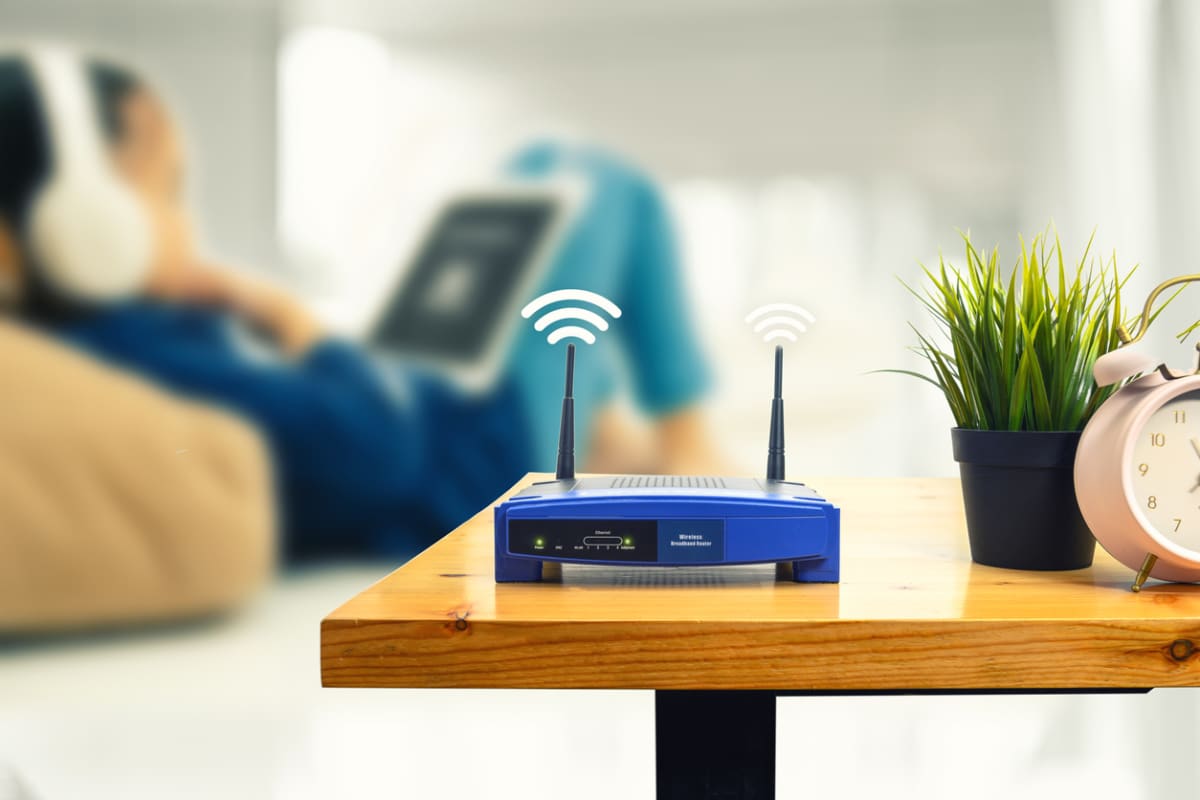Is Wi-Fi Important as an Amenity?

Rental property owners must provide the best environments for people to create their homes, especially in competitive markets. While many amenities have come into fashion over the years — from fitness centers to package centers — one improvement that is likely here to stay in renters’ hearts is high-speed Internet access.
An increasing number of renters are young professionals with hybrid work schedules. Even more want to connect smart devices and support multiple computers or screens. How can investors meet this need? These are a few factors for landlords and investors to consider when upgrading their properties.
1. Residents Need High-Speed Internet
Dial-up internet is a thing of the past, but that doesn’t mean all internet is fast enough for daily life. Various plans have different upload and download speeds. Compromising costs by choosing a standard plan for residents may result in fewer long-term renters.
Recent research shows that 91.7% of apartment residents want high-speed internet as a top personal priority. They’ll pass over properties that don’t enable the proper speeds for activities like streaming media, playing games, and working.
Advertising the property’s internet or available plans is crucial in attracting potential residents. If they know they’ll have high-speed access for their digital needs, Internet-savvy applicants may be more likely to rent from that property over local competitors.
2. Multifamily-Specific Providers Are Necessary
Although investors and landlords may want to partner with an internet provider for a standard plan, multifamily-specific plans will be better for residents. They’re more extensive packages that offer increased connections through a more expansive network infrastructure.
They also come with 24/7 service that can handle more daily calls, given that numerous households will be on the same internet connection.
We know that 40% of Americans want full-time remote work – and reliable internet will help them stay in their living spaces longer. They’ll connect to multifamily-plan internet just like a standard plan, but they’ll receive numerous benefits they wouldn’t enjoy with a plan designed for fewer people to use continually.
Residents can also bring their Wi-Fi routers with multifamily plans. Anyone who’s immersed in the tech world with upgraded components won’t have to sacrifice the hardware they prefer just to select a good place to live. After moving in, they’ll only need to call the provider and connect their chosen router to start their immediate Wi-Fi connection. It may even be faster than waiting for the provider to send a technician to set everything up.
3. Community-Wide Internet Retains Renters
Renters use their internet while lounging at home, but they also use it throughout a community property. They may want to stream music while hanging out at the community playground with their kids, swimming in the property pool, or using the community gym.
High-speed internet is the amenity that supports how residents use and enjoy other property amenities. Unfortunately, many people think that public networks compromise residents’ privacy when they’re on the internet in their unit. The reality is that community Wi-Fi routes public users differently through a separate network than private user log-ins used by residents.
Investing in a public access network available throughout a rental community demonstrates that the property owners know their residents’ needs. Potential renters will immediately notice that care when they arrive for property tours and see a public-access network readily available.
4. Internet Bills Become Ancillary Revenue
Rental property owners know that ancillary revenue is an excellent way to boost a property’s net worth and profits. Finding sources for that revenue may seem challenging, but Wi-Fi is an excellent way to meet that need.
Instead of requesting that residents find an internet service provider independently, property managers can provide a high-speed plan with each rental unit. The lease functions as the contract for the internet service and everyone’s Wi-Fi bill gets paid through their resident portal.
Paying through the resident portal automatically boosts the net operating income of a rental property or community. Management’s income will diversify while improving residents’ daily lives and making the property more competitive.
5. People Use the Internet Daily
Research shows that people spend 23 hours each week on the internet browsing social media, checking their emails, and texting loved ones. That statistic doesn’t include people who work from home and use it for 40-hour work weeks or those who rely on the internet for entertainment after work.
When people see a rental community offer Wi-Fi as an amenity, they know they’ll feel comfortable there because a short-term lack of internet won’t disrupt their daily life. The promise of a potential rental unit gets even better when the included plan has high-speed upload and download capabilities.
People will almost always pick properties with high-speed internet as an amenity because it brings the property into the modern world. Anyone who wants to make their rental units more competitive can offer better internet speeds as a rental-package inclusion to make their residents more comfortable in the internet age.
Consider Providing a Wi-Fi Amenity
Rental owners are starting to realize that Wi-Fi is more important than ever as an amenity because it’s what residents need for their work and personal lives. Adding it to each lease and providing high-speed service will attract more potential renters, retain them longer, and make people more willing to sign lease agreements over other properties.
Author:
Evelyn Long is the editor-in-chief of Renovated, a web magazine covering real estate market trends. Her writing has been published by the National Association of REALTORS®, Insights for Professionals and other online publications.
